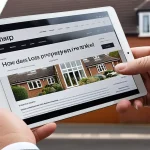Emerging Technologies Shaping UK Property Investment
Emerging property investment technologies in the UK are redefining how investors approach the real estate market. The impact of technology on UK real estate is profound, introducing innovative tools that streamline decision-making, enhance transparency, and improve asset management. Proptech, or property technology, plays a central role by integrating advanced solutions such as artificial intelligence, blockchain, the Internet of Things (IoT), and big data analytics into property investment strategies.
Artificial intelligence property investment UK applications help process vast datasets to forecast market trends, identify lucrative assets, and tailor investment portfolios efficiently. Simultaneously, blockchain real estate UK initiatives improve transaction security and transparency by using decentralized ledgers to verify ownership and transfer records, markedly reducing fraud risks. Smart contracts property investment enable automated, self-executing agreements that minimize administrative overhead, speeding up deal closures and lowering costs.
In parallel : What are the advantages of REITs in the UK real estate sector?
The IoT property management UK sector brings new capabilities, such as real-time monitoring of property conditions and predictive maintenance, which safeguard asset value and enhance tenant satisfaction. Digital property investment platforms further transform the investor experience, connecting stakeholders seamlessly and offering unprecedented access to market insights and opportunities.
This technology-driven approach contrasts with traditional methods reliant on manual analysis, intuition, and slower, paper-based processes. Property technology trends UK reveal a shift towards data-driven, automated, and transparent mechanisms that elevate investment outcomes. As these technologies integrate, understanding their distinct roles empowers investors and developers to navigate a rapidly evolving property market landscape confidently.
Also to see : How Does the UK Real Estate Market Influence Investment Strategies?
Artificial Intelligence and Big Data in Investment Strategies
Artificial intelligence property investment UK applications significantly optimise investment decisions and portfolio management by processing vast datasets rapidly and accurately. AI algorithms analyse patterns in historical and real-time data, enabling investors to forecast market trends and identify high-potential properties with enhanced precision. This technology surpasses traditional intuition-based methods by offering actionable insights derived from comprehensive data evaluation.
Big data analytics real estate UK complements AI by aggregating diverse information sources such as market performance records, economic indicators, demographic shifts, and consumer behaviour. Through predictive modelling, big data facilitates accurate property valuations and risk assessments, empowering investors to make informed decisions. For instance, combining AI with big data enables scenario simulations to assess potential returns under varying market conditions, improving investment resilience.
Together, artificial intelligence property investment UK tools and big data analytics real estate UK revolutionise how investors approach property portfolios. These technologies provide a data-driven framework that reduces uncertainty, enhances transparency, and increases portfolio optimisation efficiency, marking a clear distinction from traditional approaches reliant on limited datasets and manual analysis.
Blockchain and Smart Contracts for Enhanced Security and Transparency
Blockchain real estate UK initiatives fundamentally improve the security and transparency of property transactions. By employing decentralized ledgers, blockchain creates immutable records of ownership that are verifiable by all parties involved. This technology substantially reduces the potential for fraud—a major concern in traditional property transactions—by ensuring that every change in ownership is recorded securely and cannot be altered retrospectively.
Smart contracts property investment solutions further enhance the process by embedding automated, self-executing agreements into blockchain platforms. These contracts activate when predefined conditions are met, eliminating the delays often encountered with manual contract enforcement. For example, payment release and title transfer can occur simultaneously without intermediaries, reducing administrative costs, accelerating transaction timelines, and providing greater clarity for investors.
Property transaction transparency UK improves with blockchain as all participants can monitor transaction status in real-time, fostering trust among buyers, sellers, and regulators. This contrasts with traditional processes that often rely on opaque, paper-based documentation prone to errors and delays. Emerging property investment technologies UK, such as blockchain and smart contracts, are crucial for revolutionising the way legal and financial aspects of UK real estate are managed. Through these digital solutions, investors experience a new level of confidence and efficiency previously unattainable in conventional settings.
IoT and Digital Platforms Improving Asset Management and Tenant Experiences
Emerging property investment technologies UK increasingly leverage IoT property management UK systems and digital platforms to transform asset oversight and tenant relationships. IoT devices installed across properties offer real-time monitoring of building conditions such as temperature, humidity, and air quality. This constant data collection enables predictive maintenance, identifying potential issues before they escalate into costly repairs. For example, sensors can detect leaks or equipment malfunctions early, preserving asset value and reducing downtime.
In addition to maintenance, IoT enhances energy efficiency by tracking consumption patterns and automating adjustments, contributing to sustainability goals—a growing priority for UK investors and tenants alike. These smart systems support proactive management practices, contrasting with traditional reactive methods that often result in slower response times and higher operational expenses.
Digital property investment platforms form another critical component of proptech UK, connecting investors, developers, and tenants in streamlined ecosystems. These platforms provide intuitive interfaces where stakeholders can access up-to-date information on market trends, property performance, and tenant feedback. By facilitating transparent communication and simplifying transaction processes, they enhance trust and satisfaction across the investment chain.
Together, IoT property management UK and digital platforms represent a paradigm shift from manual, fragmented management to integrated, data-driven strategies. This synergy empowers investors to maximise returns while improving tenant experiences—key drivers behind the adoption of emerging property investment technologies UK in today’s competitive market.
Key Challenges and Considerations for Adopting Emerging Technologies
Adopting emerging property investment technologies UK presents notable challenges that investors and developers must carefully navigate. Foremost among these are regulatory considerations property tech, where compliance with UK property laws and data protection regulations demands thorough understanding and ongoing vigilance. For example, blockchain real estate UK initiatives must adhere to legal frameworks regarding property ownership verification and anti-money laundering statutes, which can slow down deployment if not properly managed.
Cybersecurity is another critical concern in this landscape. Technology risks property investment arise from potential data breaches or system vulnerabilities that may expose sensitive transactional information or operational controls. Given the increasing integration of IoT property management UK devices and digital platforms, ensuring robust security protocols is essential to safeguard both investor assets and tenant data.
Moreover, proptech adoption challenges UK include resistance from traditional stakeholders accustomed to legacy investment processes. The transition to technology-driven solutions often requires new skill sets and a cultural shift within organisations, which can delay implementation and limit the realisation of technology benefits. Financial barriers also play a role, as initial investment in hardware, software, and training may be substantial, especially for smaller enterprises.
Understanding and addressing these obstacles through strategic planning and expert guidance can facilitate smoother adoption of innovative solutions. This proactive approach ultimately unlocks the transformational advantages heralded by property technology trends UK, enabling stakeholders to capitalise on increased efficiency, transparency, and market agility.
Emerging Technologies Shaping UK Property Investment
Emerging property investment technologies UK are fundamentally altering the landscape of real estate investment in the region. Central to this transformation is proptech, which integrates artificial intelligence, blockchain, the Internet of Things (IoT), and big data, creating innovative solutions that improve efficiency, security, and transparency. These technologies collectively provide investors with advanced tools that surpass traditional methods reliant on manual data processing and intuition.
Artificial intelligence enables sophisticated analysis of market trends, identifying promising opportunities with greater accuracy. Blockchain enhances property transaction transparency UK by creating immutable records, reducing fraud and increasing trust among stakeholders. IoT property management UK contributes to maintaining asset value through real-time monitoring and predictive maintenance, while digital platforms foster seamless communication between investors, developers, and tenants.
The impact of technology on UK real estate is evident in the shift from slower, paper-based processes to automated, data-driven approaches that enhance decision-making and operational management. Property technology trends UK highlight continuous innovation, making these emerging technologies indispensable for competitive investment strategies today.
Emerging Technologies Shaping UK Property Investment
Emerging property investment technologies UK are fundamentally transforming the real estate landscape by introducing advanced tools such as artificial intelligence, blockchain, the Internet of Things (IoT), and big data analytics. These technologies collectively redefine investment strategies by enhancing accuracy, security, and operational efficiency, marking a clear departure from traditional practices reliant on manual processes and limited data.
Artificial intelligence property investment UK applications automate the analysis of complex datasets, enabling investors to predict market trends and optimise portfolios with enhanced precision. Big data analytics real estate UK complements this by integrating various data sources—such as economic indicators, demographic trends, and market performance—to create predictive models for property valuation and risk management. This dual approach provides a robust framework for data-driven decision-making that surpasses conventional intuition-based methods.
Blockchain real estate UK initiatives contribute by creating immutable, transparent records of ownership and transactions, which challenge the opacity and vulnerabilities of traditional real estate dealings. Smart contracts property investment further streamline operations by executing agreements automatically once conditions are met, reducing administrative delays and costs. This level of property transaction transparency UK cultivates trust across buyers, sellers, and regulators, mitigating fraud risks effectively.
IoT property management UK introduces real-time monitoring capabilities that allow proactive maintenance and energy optimisation, preserving asset value and enhancing tenant satisfaction. Meanwhile, digital property investment platforms facilitate seamless communication and data exchange among investors, developers, and tenants, simplifying market navigation and transaction workflows.
Together, these emerging property investment technologies UK form an integrated ecosystem that revolutionises the impact of technology on UK real estate. They foster a transition from slower, paper-based procedures to automated, transparent, and data-centric methodologies. Property technology trends UK thus emphasize continuous innovation that empowers stakeholders with smarter, more efficient tools to navigate the increasingly complex property market environment.



